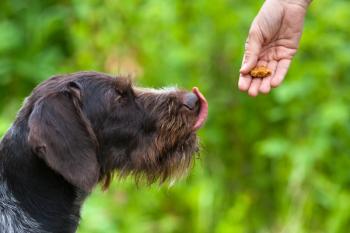
USU researchers look at 'pasture pharmacy' alternatives for livestock
Logan, Utah - An agricultural researcher is investigating new pasture-management strategies to treat various conditions of livestock.
LOGAN, UTAH — An agricultural researcher is investigating new pasture-management strategies to treat various conditions of livestock.
Juan Villalba, associate professor in the Department of Wildland Resources at Utah State University, is studying how animals select grazing pastures to minimize health conditions associated with parasites and disease-causing bacteria.
Through Villalba's research, part of which are tested in the field—literally in a nine-acre USU pasture setting— he has discovered that certain plants, such as legumes and grasses, have medicinal characteristics or compounds that can help manage internal parasites or other health conditions.
"Animals that consume these compounds can reduce parasitic incidence, and incidence of bacteria, such as E. coli," Villalba says. Preliminary research has shown that at least one type of legume, in a low-dose variety, has shown potential to reduce shedding of E. coli 0157 H7.
By grazing on these pastures, Villalba says the animals produce a meat that has a lower proportion of saturated fatty acids and a higher concentration of healthy fats. The compounds also help produce more stable meat with a longer shelf life and lower oxidation, he says.
Villalba notes that only sick animals will look for the medicinal plants. Access to these plants allows the animals to choose them.
"There may be a higher, stronger immune response when consuming appropriate concentration of these compounds, because some of the compounds are antioxidants."
Pasture specifics
For his research, Villalba used feed barrels with test patches of plants in the pasture. The plantings combined alfalfa next to the medicinal compound plants under investigation. Sick animals, or those animals that tested positive for parasitic infections, favored plants that helped them with their sickness, Villalba says. No chemicals were used in these plants, he notes.
Once the animal's condition improved, he notes, they often returned to their normal diet, away from the medicinal plants.
Villalba says these findings may enable livestock veterinarians and researchers to move toward a "pasture pharmacy" of sorts where animals can graze as needed on plants rich with compounds to help them heal. Pasture pharmacy embraces the idea that medicinal compounds are naturally present in some plant species.
"Parasites have developed resistance to traditional chemotherapies. Use of alternatives like these compounds will reduce incidence of chemotherapies. For organic producers who can't use chemicals, this news is, for sure, significant. They can use natural plant products, which are perfectly fine to use in an organic setting. They would be filling pastures with cultivars and varieties that contain these compounds. Then, the goal is to have the animals self-select pastures or favor pastures that have these compounds," Villalba says.
Ultimately, Villalba and researchers in his field are proposing that animals have choices when feeding on multiple pastures. The goal would be to set up some pastures with these beneficial compounds and some without.
"If you offer up a monoculture, an animal will have a negative impact in productivity. We are going back to what nature offers to animals—a variety of plant species. To diminish negative impacts of these compounds, we are offering a diverse diet as opposed to monoculture," he says.
Newsletter
From exam room tips to practice management insights, get trusted veterinary news delivered straight to your inbox—subscribe to dvm360.






